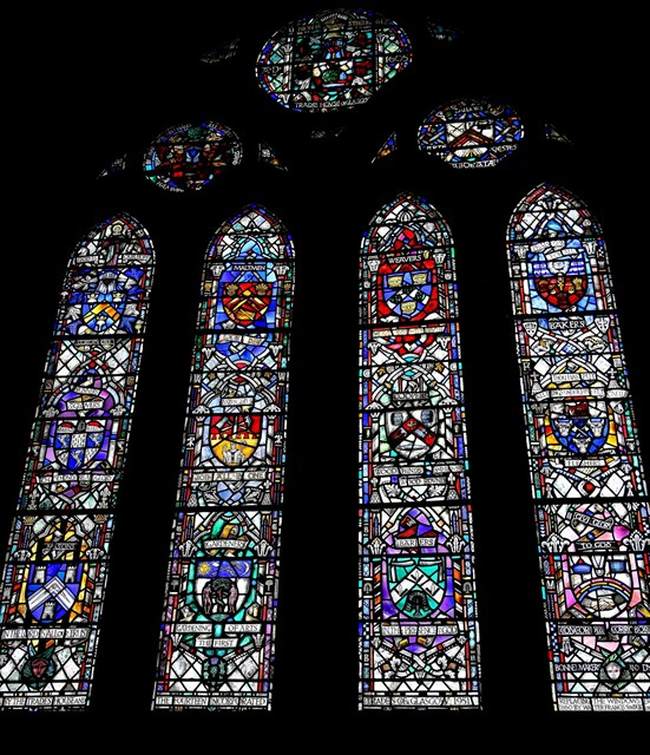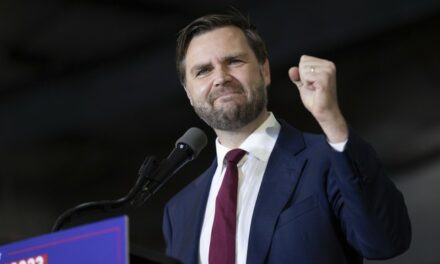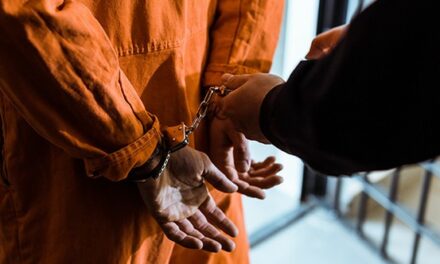We support our Publishers and Content Creators. You can view this story on their website by CLICKING HERE.

There is an ancient Chinese curse: “May you live in interesting times.” Our times are nothing if not interesting. And they are harrowing, to say the least. Having vaulted into a technological leap forward that has given us chaos on par with, if not greater than, the benefits it brings, we find ourselves awash in a sea of data and input.
Advertisement
Despite the fact that we are more closely connected to the world than ever before, we are still being swept away from each other and from God. There are encouraging signs that the immediate future may be brighter than we once hoped, but our attention is increasingly fragmented, so much so that we no longer know the people in our lives, and in many cases, we no longer know our God. In his latest book, “Living in Wonder: Finding Mystery and Meaning in a Secular Age,” Rod Dreher offers a way to chart a course back to communion with the Divine. I spoke with Dreher this week. The transcript of part one of our conversation is below.
(Editor’s note: this is a rough transcript of the interview, so it may have slight errors in it.)
Lincoln Brown: For me, it (the book) really came down to this passage from Paul Kingsnorth, and I’ll quote it here, “Kingsnorth faults the Reformation, especially in England, for severing the link between heaven and earth, so to speak, by closing the monasteries, stripping the churches of holy images, banning holy wells and other natural things.” And to me, that — and I know that’s a very small part of the book — but that really brought everything in the book together.
Rod Dreher: Yeah, because what Paul is talking about there is what the radical Reformation did, or what, at least, the stripping of the altars, and all that did was cut the connection between the physical and the material and the holy. But this is something that had been there since the beginning of Christianity. You know, you can go back and read the church fathers and church historians tell us that this was all there, that there was this understanding, that God speaks to us, the God who became incarnate in Jesus Christ, Jesus of Nazareth, God speaks to us through the material world too. It’s not the only way he speaks to us. But in the Reformation, they began to deny that, and that’s why they became so iconoclastic.
And, you know, I don’t want to be understood as blaming the Reformation itself for disenchantment. There was a lot that went into that. And I think everybody who knows anything about church history knows the Reformation didn’t come from nowhere. There’s a guy, Michael Allen Gillespie, I think his name is. He wrote a book called “The Theological Origins of Modernity,” and one thing he points out is that all of the theological shifts that happened within Roman Catholicism, just to say Western Christianity, were already in place before Luther went and nailed his 95 Theses there. So this is a long process. It’s been underway, but the Reformation itself was a radical leap forward, or from my point of view, a leap backward, away from the truth, which is that, as an Orthodox Christian, I believe God is everywhere, present, and fills all things.
Advertisement
LB: Originally, I was an Episcopalian, and I was denied ordination. And to be honest, in retrospect, I had no business seeking the priesthood, and I’m fine with that, but I was denied ordination at the time because this particular diocese only wanted women, people of color, or gay people, and as a straight white man, it was made clear to me I was persona non grata, and I was okay with that. At first, it was horrible, but the sun came up, gravity still worked, and I was okay. And I started reading a lot of Joseph Campbell, which led me into Buddhism for a while. My second wife said, well, we need to become evangelicals. It was from there that we went to Orthodoxy, but I noticed within the evangelical tradition there has been a sharp rise in apologetics, which I think is important. We need apologetics. But there was a huge uptick in apologetics as we moved away from the mystical and, for that matter, the enchantment you talk about.
RD: Right, right. Well, apologetics are, strictly speaking, in terms of making arguments for the faith, that is something that’s on the way out. It’ll never be useless. We have to have that. But it just doesn’t work as well as it used to because we in the West are in a post-rational age. People can sit there and listen to you make an airtight argument for, you know, a theological premise, and they’ll just shrug and say, so what? And that’s unfortunately where we are today.
I happen to believe that Pope Benedict XVI, who is really a hero of mine, that he was right when he said today, in this post-rational age, the best arguments, the best apologetics, arguments that the church has for itself are not the standard rational arguments, but rather the beauty that the church produces in the saints, which is a way of saying incarnate moral beauty.
Why is that? Benedict’s argument was that you can’t argue with beauty, and you can’t argue with holiness. When you’re confronted with great beauty or great holiness, it flies below all your intellectual defenses, and it makes you want to know more about “Where did that beauty come from? Where did that holiness come from?” And that opens the door in your heart and in your mind to the propositional truth, to the Gospel.
Advertisement
And I know this is true because I lived it myself. I was an agnostic as a teenager. I was raised as a more or less non-church-going Methodist when I got to be a teenager. I didn’t, you know, I didn’t take any of it seriously. And then one day, when I was 17 years old, my mom had won a trip to Europe, didn’t want to go, and sent me. I was the only young person on a bus full of elderly American tourists. At seventeen years old, I walked into an old church in France, and I was completely overwhelmed. This was the Cathedral at Chartres.
Now, I didn’t know anything about it. I grew up in the late 20th century in the United States in a small town in the Deep South. What is this place? I didn’t realize until later that this was one of the great churches of Western civilization. I stood there in that Gothic church in the nave, and I looked around at the vaulting arches, the stained glass windows, and I knew in my heart of hearts that God is real and that He wants me. All of my shallow, agnostic arguments just evaporated. Now, I didn’t walk out of there as a reconverted Christian, but I did walk out of there, Lincoln, on a search, and it was a search that took a lot of twists and turns, intellectually and otherwise, and I got, gosh, this. I was 17.
Then, when I was about 24-25, I ended up as a journalist sent to interview an elderly Catholic priest who lived in Baton Rouge, La. That’s where I was living. I was sent to interview him for a feature story for the newspaper. This old priest was in his 90s, and he was luminous. It was like some sort of Catholic Yoda, just a sweet, dear, holy man. You could feel the holiness peeling off of him. And I sat down and asked him his story. Well, he talked about how he had been sent by his parents in Guatemala to the U.S. for college and had lost his faith in the Ivy League, but he didn’t dare tell his parents because he didn’t want to upset them. He experienced two radical miracles involving the Eucharist; the first one brought him back to faith, and the second one brought him into the priesthood.
Now the key thing about that is this old man, as he was telling me about these events that had happened 50, 60, years earlier, he was weeping copiously, and something about this said, “This man saw something real, and I can’t hide anymore.” I left that old man wanting Jesus Christ more than I wanted myself, and it was that that affected my conversion, my becoming a Christian. But I bring those two up because these are the bookends of my journey to becoming a Christian, and they illustrate what Pope Benedict was talking about; the arguments, the rational arguments, were there all along, but my will was not oriented to giving them fair hearing until I had this radical encounter with beauty and with holiness.
Advertisement
LB: I realize that I’m coming to this a little through the back door. I should have led with this question. But, you know, the book is about enchantment. What is enchantment? In this case, what we might call actual enchantment versus counterfeit enchantment, and the people that say, “Well, I don’t need to go to church because I experienced God when I reel in a striped bass off my boat on Sunday morning,” which I’m not saying couldn’t happen.
RD: Yeah, it’s rationalization, yeah, no, I grew up like that. I grew up in the country, and I remember during my sneering teenage agnostic phase, my father told me, “You’re going to church on Easter Sunday with your mom.” Like, “Well, why aren’t you going? “Well, I’m going turkey hunting.” “Well, why are you doing that?” “I can feel God out in the woods.” And I said, “Tell you what. I’ll make a deal with you. You let me stay home from church. I’ll read the Bible for an hour, and you can go turkey hunt, and I won’t hassle you about it. Deal.” Now, the reason I bring that up is not to throw my poor father under the bus. He did reconcile with God before he died, but simply to say, kids get it. You know, you can’t have a Christianity that you can pass on credibly to your kids if you’re not willing to live it yourself.
Now, to go back to your question, enchantment is, first of all, it’s a word I don’t like because it sounds kind of cheap. You know, you think about “enchantment” in the sense of, oh, look, it’s an enchanting living room or something. Or you think about it in terms of sprinkling fairy dust, and suddenly, you’re living in Disneyland. Or, more darkly, you think about enchantment. You think about witches. I don’t mean that at all.
I mean it in the sense that the sociologist Max Faber meant when he said the modern world is disenchanted. What he meant is the sense of the spiritual has gone out of the world, that we no longer think of our world as filled with spirit, or as we Orthodox say, where God is everywhere, present and filling all things. It doesn’t mean necessarily we don’t believe in God, but God has become an absent God. God has become a god of concepts in our head, of moral precepts and theological concepts, as opposed to something and someone we perceive in our daily lives.
Advertisement
So, with re-enchantment. I’m trying to call all Christians back to a more perceptive — in the sense I mean, perceptive relationship with God, where He does feel present. We communicate with Him, chiefly through prayer, but in other ways. And not only that, but we have a rock-solid sense that there is ultimate meaning in things. That somehow, in the created world, the logos of Jesus Christ is in all things, and things have meaning. It is a way to address the meaning crisis.
Now, you asked about this form of enchantment, Christian enchantment, versus what I call false enchantment or dark enchantment. False enchantment is what I would say, and it does bleed over into dark enchantment. Maybe I should start with dark first. Dark is the occult. You have so many young people today who are turning to witchcraft, various forms of paganism, things like that, seeking the numinous and experience of the mysterious, paranormal, that sort of thing. And what they’re doing is they’re opening themselves up to, quite frankly, the demonic. And if you’ve talked to as many exorcists as I have, you know this is not a joke.
But there are also forms of false enchantment, like psychedelic drugs, for example. People take these drugs, and they have real experiences, and this is where it leads over into the dark. They have experiences of spiritual beings, especially if they take DMT, which is, I think, the strongest one, but it’s not of God. And you can open yourself up, make your mind and your soul porous to some really dark entities. By doing this, the only true and safe enchantment is through Jesus Christ and through the church, through the way that he proclaimed through the church. And that’s what I want people to understand. You’re right to seek enchantment. We can’t live in a disenchanted world. We will die if we do that, and in fact, we are dying. But there’s a way to recover it, and that is to go back to the deep traditions of the Christian church and not these false pathways through technology or, you know, the occult or psychedelic drugs.
LB: As a brief detour, before we became serious about the faith, I joined the Masons. And what’s interesting is the Masons, you know, Freemasonry. And I went up to the 32nd degree in the Scottish Rite. And I went all the way to the top in the York Rite and did all the Blue Lodge stuff. And there is a very strong veneer of mysticism around Freemasonry. You know, there are candles and skulls, intonations, and very serious-seeming secret rituals. They give you that sense of things, and you really do feel that you are somehow connected to an ancient tradition. Much of what you get in the Scottish Rite is kind of cobbled together from, like, eight million different traditions. It’s not, you know, as cohesive as people think it is. But later on, I got hooked on Father Carlos Martin’s “Exorcist Files.”
Advertisement
RD: Oh, yes.
LB: I stumbled on that by accident. It was one of those podcasts you wait for the downloads. And he talked about the role of Freemasonry. And I went to an Orthodox priest, and I said, “Okay, is it possible, having been involved in this, that I have brought some sort of curse on myself, on my family, on various things?” Is it possible that in trifling with this, I have opened one of these doors, and I become porous, as you put it? And he’s a good guy, but he said, “No, you quit the Freemasons. You revoked it, you renounced it. Don’t worry about it. Concentrate on other things.” It’s hard to find outside of the Catholic Church a priest that’s going take this seriously or people who aren’t eyeball-deep in it who will take it seriously.
RD: You know, it’s so interesting you bring that up. Freemasonry goes back a number of generations in my own family. You know, growing up in the South among Protestants since a lot of Protestant men were also Freemasons, and that’s the case in my family, and even though I was never involved with it at all. My confessor, an Orthodox priest named Father Nectarios Trevino, who was also an exorcist, a trained exorcist, told me when we developed a relationship, when he became my confessor, he had me say prayers of renunciation, about Freemasonry, just to be sure.
And you know, as we’ve gotten to know each other, Father Nectarios and I, he has spoken out openly. He was on a podcast here in Budapest, where I’m speaking from earlier this year, where he talked about how even in the Orthodox Church of the United States, we don’t even take this stuff seriously about exorcism and spiritual warfare, and we should as part of our tradition, but Father Nectarios had to go to Rome to be trained in exorcism by Father Gabriel Amorth, the late, great, former Chief Exorcist of Rome. And I just, I think I just shake my head when I look at our own tradition, Orthodoxy in America, and how so many of our priests don’t even know about this stuff. They’re never taught in seminary. That really has to change because the need for exorcism and spiritual warfare is booming.

 Conservative
Conservative  Search
Search Trending
Trending Current News
Current News 







